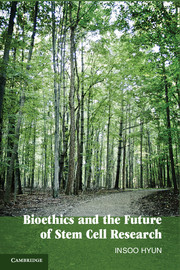Summary
The caravan of stem cell science travels onward. In the prologue I suggested opposite interpretations were possible for what gives stem cell science its tremendous momentum around the world. On the one hand, stem cell research is driven by inquiries within the ongoing narrative of science, first launched by explorations into developmental and cell biology and genetics, and further enabled through advances in tissue cultivation. On the other hand, stem cell research is also driven by the exciting practical applications of basic scientific discoveries and the commercial and patient interests that soon follow. Readers should now see why both of these interpretations of the caravan metaphor are correct. Stem cell science is truly a caravan in the most figurative sense of the word, for it is suggestive of wide-eyed exploration, commercial gain, and the hope for a better life. As stem cell science proceeds into the future, important questions need to be asked about how its progress will affect the rights and interests of those involved in the research and those whose well-being may hinge on its results.
I have argued that the amazing plasticity of human cells, which stem cell science has barely begun to expand, offers us new powers and new uncertainties, just as all transformative technologies have done since the seventeenth century. Secular bioethics provides society with a means to bridle these new powers and to steer through these new uncertainties, but there are limitations. The dual language of secular bioethics – both the present tense of deontological rights and duties and the future tense of consequentialist moral priorities – may not yet have a complete moral grammar to deal with structural problems lingering in our ethical discourse. These issues involve the limits of people’s autonomy rights and beneficent duties, the scope of morally relevant consequences, and the incommensurability of fundamental values.
Information
- Type
- Chapter
- Information
- Bioethics and the Future of Stem Cell Research , pp. 202 - 204Publisher: Cambridge University PressPrint publication year: 2013
